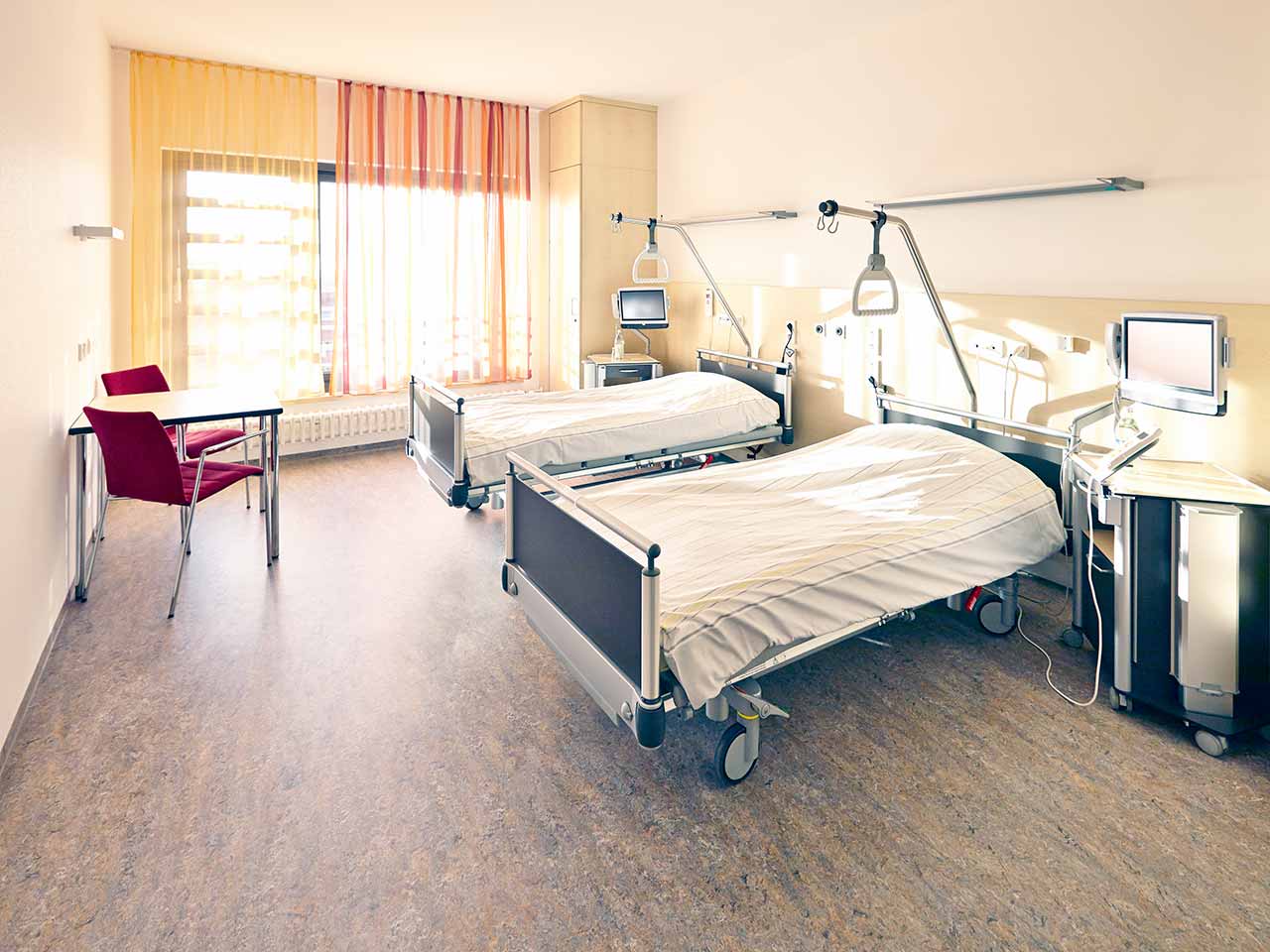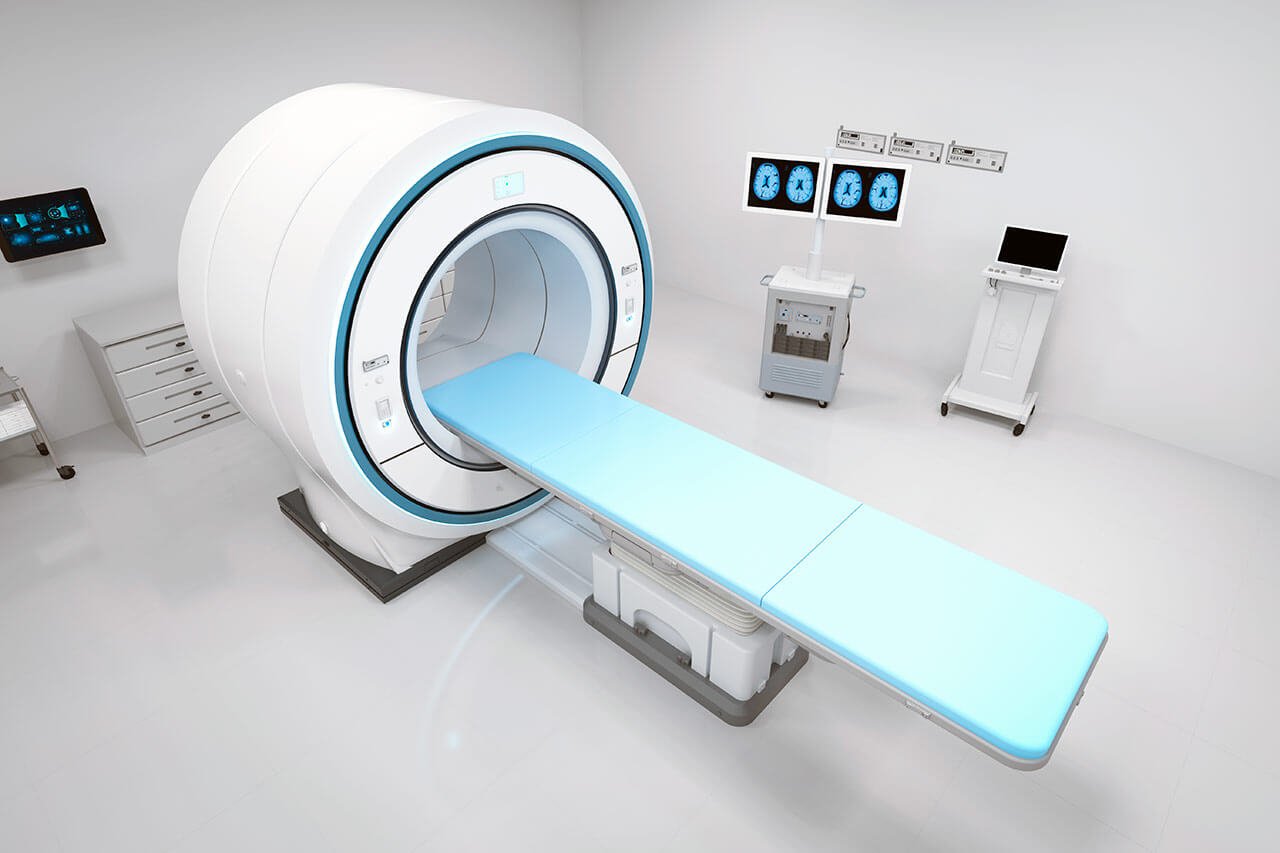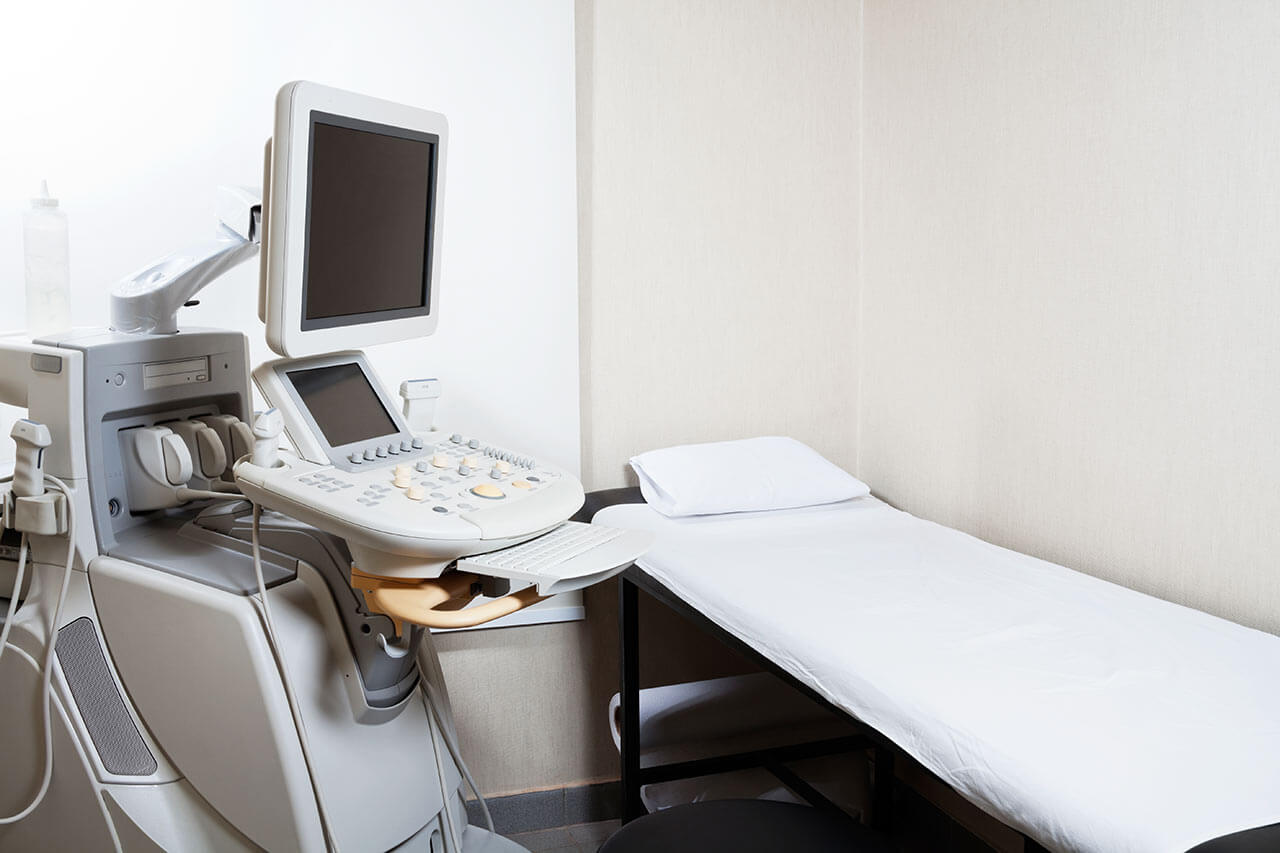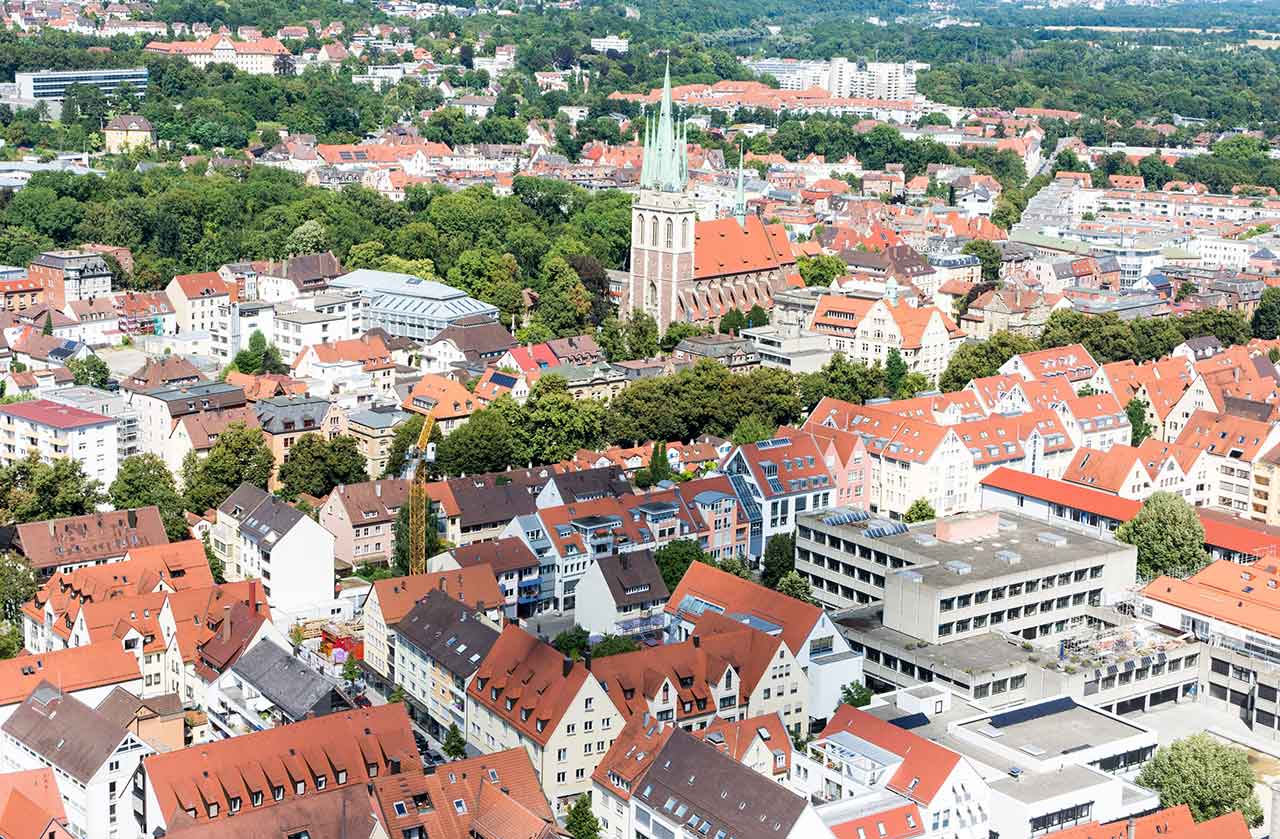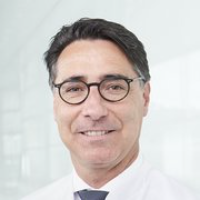
The program includes:
- Initial presentation in the clinic
- clinical history taking
- review of medical records
- physical examination
- laboratory tests:
- complete blood count
- biochemical analysis of blood
- mineral metabolism analysis (Na, K, Ca, Mg)
- lipid metabolism (HDL/LDL, cholesterol,
triglycerides Lip(a), homocysteine) - inflammation indicators (CRP, ESR)
- indicators blood coagulation
- blood gas analysis
- chest x-ray examination
- holter monitoring (24h)
- measurement of arterial blood pressure
- electrocardiogram (ECG)
- pulmonary function test
- echocardiography
- doppler echocardiography
- high-resolution computed tomography (HR-CT)/MRI (on indication 950/1200€)
- CT angiography (on indication 1350€)
- nursing services
- consultation of related specialists
- treatment by chief physician and all leading experts
- explanation of individual treatment plan
(the cost of medicines is not included)
Required documents
- Medical records
- ECG (if available)
Service
You may also book:
 BookingHealth Price from:
BookingHealth Price from:
About the department
The Department of Cardiology and Angiology at the University Hospital Ulm offers the full range of medical services in the areas of its specialization. The medical facility holds consultations and carries out the diagnostics and treatment of diseases of the heart and blood vessels. The department's team of cardiologists focuses on patients with valvular heart disease, heart rhythm disturbances, coronary artery disease, heart failure, and congenital heart disease. The department has a Chest Pain Unit certified by the German Cardiac Society (DGK) for the treatment of acute coronary syndrome. In the field of angiology, of key interest is the treatment of peripheral arterial occlusive disease, vascular stenosis of various locations, including carotid artery stenosis, and deep vein thrombosis. During the treatment of diseases of the heart and blood vessels, the department’s specialists use various drug therapy regimens and perform image-guided interventional procedures. The medical facility has been recognized with quality certificates for transcatheter aortic valve implantation (TAVI) and treatment of heart failure and mitral valve disease. Patients are treated by highly qualified physicians who strive to restore the patient's health using sparing treatment methods. The Head Physician of the department is Prof. Dr. med. Wolfgang Rottbauer.
The department is a leader in catheter-based treatment of valvular heart disease. Aortic valve stenosis is one of the most common heart valve defects. Cardiac pathology causes a significant increase in the workload on the left ventricle of the heart, as a result of which its pumping function is affected. Patients with this disease suffer from dizziness, fainting, increased fatigue, and pain in the heart and behind the sternum. Without surgery for aortic valve stenosis, the patient is at risk of sudden cardiac death. Until 2005, aortic valve replacement surgery was performed under general anesthesia using a heart-lung machine.Today, cardiologists employ sparing catheter-based techniques, which have become the standard method for treating many heart pathologies. The department's specialists successfully perform transcatheter aortic valve implantation (TAVI) to replace the stenosed aortic valve. An artificial aortic valve is delivered to the patient's heart through a small puncture in the inguinal artery with the help of a catheter under imaging guidance. It is implanted in the desired position (the patient's own heart valve is not removed). Numerous studies show that transcatheter aortic valve implantation significantly reduces the risk of complications and increases survival rates. Prior to the intervention, cardiac CT, heart ultrasound, and catheterization of the heart chambers are performed to determine the size and type of the valve. The TAVI procedure is performed in a hybrid operating room with state-of-the-art medical equipment.
The second most common heart valve defect is mitral regurgitation. This disease causes incomplete closure of the mitral valve, due to which some blood flows back into the left atrium during ventricular systole. Mitral regurgitation causes symptoms such as coughing, shortness of breath (including at rest), and leg swelling. In the long term, heart failure may develop. Until recently, the only effective treatment method for the pathology was open surgery, but in 2008, an innovative catheter-based technique called MitraClip was implemented into clinical practice. This procedure allows for the treatment of mitral regurgitation without thoracotomy. It should be noted that the department is one of the most experienced German centers specializing in the treatment of mitral regurgitation using the MitraClip technique, and more than 500 interventions of this kind have been performed here. The MitraClip procedure is performed in a modern hybrid operating room under general anesthesia and imaging guidance. The heart is approached through a puncture in the femoral artery.
The department's team of cardiologists is constantly exploring new, progressive treatment methods. For instance, their longstanding research in treating arrhythmias has borne fruit: the department's specialists were the first in the world to perform an interventional procedure using cryoballoon for atrial fibrillation treatment. The department is proud to offer this innovative treatment method to patients with atrial fibrillation.
The department also provides the full range of services for treating vascular diseases. The team of angiologists regularly performs interventional treatment for peripheral arterial occlusive disease, thrombosis, carotid artery stenosis, and inflammatory vascular lesions, including those caused by rheumatic diseases. The most effective treatment method for vascular stenosis is balloon angioplasty with stent implantation. The interventional procedure is most often performed under local anesthesia. The results of balloon angioplasty are comparable to the results of open surgery. For the treatment of peripheral arterial occlusive disease, the department's specialists often perform catheter atherectomy, the essence of which is the removal of atherosclerotic plaques from the blood vessel. The department's doctors have at their command effective sparing treatment methods for acute thromboses, such as rotational thrombectomy, aspiration thrombectomy, and thrombolytic therapy.
The department's main clinical focuses include:
- Cardiology
- Diagnostics and treatment of valvular heart disease
- Transcatheter aortic valve implantation (TAVI) for aortic valve stenosis
- MitraClip procedure for mitral regurgitation
- Diagnostics and treatment of heart rhythm disturbances
- Interventional procedures using cryoballoon for atrial fibrillation
- Pacemaker implantation
- Implantable cardioverter-defibrillator placement
- Catheter ablation for tachycardia
- Left atrial appendage closure for atrial fibrillation
- Diagnostics and treatment of coronary artery disease
- Coronary stenting
- Rotational atherectomy
- Coronary artery recanalization
- Diagnostics and treatment of heart failure
- Drug therapy
- Catheter-based interventions
- Diagnostics and treatment of congenital heart disease in adults
- Drug therapy
- Catheter-based interventions
- Diagnostics and treatment of valvular heart disease
- Angiology
- Diagnostics and treatment of peripheral arterial occlusive disease
- Balloon dilatation with stent implantation
- Catheter atherectomy
- Diagnostics and treatment of thrombosis
- Rotational thrombectomy
- Aspiration thrombectomy
- Thrombolytic therapy
- Diagnostics and treatment of carotid artery stenosis
- Balloon angioplasty with stent implantation
- Diagnosis and treatment of inflammatory vascular lesions caused by rheumatic diseases
- Drug therapy
- Diagnostics and treatment of peripheral arterial occlusive disease
- Other medical services
Curriculum vitae
Higher Education and Professional Career
- 1987 - 1989 Medical studies, Faculty of Medicine, University of Regensburg.
- 1989 - 1994 Medical studies, Faculty of Medicine, Julius Maximilian University of Wuerzburg.
- 1992 - 1993 Research Fellowship, Faculty of Medicine, Columbia University, New York, USA.
- 1994 Thesis defense in Cardiology, Julius Maximilian University of Wuerzburg.
- 1994 - 1997 Resident and Research Fellow, Department of Cardiology, University Hospital Heidelberg.
- 1997 - 1998 Resident and Research Fellow, Department of Cardiology, University Hospital Luebeck.
- 1998 - 2002 Postdoctoral Fellowship, Harvard Medical School, Massachusetts General Hospital, Cardiovascular Research Center.
- 2002 - 2008 Head of the Molecular Genetics Group, University of Heidelberg.
- 2004 - 2006 Board certification in Internal Medicine and Cardiology.
- 2004 Attending Physician, Department of Cardiology, University Hospital Heidelberg.
- 2008 Deputy Head Physician, Department of Cardiology, University Hospital Heidelberg.
- Since 2010 Head Physician, Department of Cardiology and Angiology, University Hospital Ulm.
Grants and Awards
- 1998 - 2000 Research Grant from the German Research Foundation (DFG).
- 2000 - 2002 Training Grant from the American Heart Association (AHA).
- 2003 Oskar Lapp Prize from the German Cardiac Society (DGK).
- 2003 - 2005 Hengstberger Research Grant from the German Cardiac Society (DGK).
Photo of the doctor: (c) Universitätsklinikum Ulm
About hospital
The University Hospital Ulm is an advanced medical complex that provides patients with high-class medical care using the very latest scientific achievements. The medical facility has been performing successful clinical activities for more than 40 years and has long earned an excellent reputation throughout Europe. The hospital regularly demonstrates high treatment success rates, takes an active part in the training of medical students, and works tirelessly on promising research projects.
The university hospital consists of 29 specialized departments and 16 scientific institutes, where more than 7,000 highly qualified employees work for the benefit of their patients. More than 55,000 inpatients and about 300,000 outpatients are treated here every year. The hospital has 1,274 beds. The medical team of the hospital is focused on providing personalized medical services using the most modern and sparing diagnostic and treatment methods.
The University Hospital Ulm is the largest medical complex in the region, and practically all areas of modern medicine are represented here. Transplantology and oncology are among the priority areas of clinical activity in the medical facility. The hospital holds leading positions in the world in bone marrow transplantation. In addition, the hospital has advanced experience in cancer treatment. The Comprehensive Cancer Center is recognized as the leading facility of this kind in the country, and it is certified by the German Cancer Society (DKG). It provides effective treatment for various types of cancer. The center also offers innovative CAR T-cell therapy. In addition, the Cancer Center is actively engaged in research activities to improve available treatment methods and develop innovative therapeutic techniques to fight cancer.
Along with the use of advanced technologies, doctors show respect, understanding, and a humane attitude toward the patient. The medical team includes competent psychologists, who are always ready to provide assistance and support to the patients and their families during the therapeutic process.
Photo: (с) depositphotos
Accommodation in hospital
Patients rooms
The patients of the University Hospital Ulm live in comfortable single and double rooms with a modern design and light colors. All patient rooms have an ensuite bathroom with a toilet and a shower. The patient room furnishings include a comfortable automatically adjustable bed, a bedside table, a wardrobe, a table and chairs, a telephone, a radio, and a TV. Wi-Fi access is also available in patient rooms.
The hospital also offers enhanced-comfort rooms, which additionally have a safe, a refrigerator, and upholstered furniture. The bathroom in the enhanced-comfort room has changeable towels, a cosmetic mirror, a hairdryer, and toiletries.
Meals and Menus
Patients and their accompanying person are offered three meals a day: breakfast, lunch, and dinner. The patient and accompanying person have a choice of three menus every day, including a vegetarian menu. Patients staying in the enhanced-comfort rooms are also offered light snacks, fruits, desserts, and hot and cold drinks in the comfortable lounge area.
If, for some reason, you do not eat all the foods, you will be offered an individual menu. Please inform the medical staff about your dietary preferences prior to treatment.
Further details
Standard rooms include:
![]() Shower
Shower
![]() Toilet
Toilet
![]() Wi-Fi
Wi-Fi
![]() TV
TV
Religion
The hospital has a chapel where Catholic and Protestant services are held weekly. The services are also broadcast on the internal television channel of the hospital. The chapel is open 24 hours a day for visits and prayers.
The services of other religious representatives are available upon request.
Accompanying person
Your accompanying person may stay with you in your patient room or at the hotel of your choice during the inpatient program.
Hotel
You may stay at the hotel of your choice during the outpatient program. Our managers will support you for selecting the best option.
